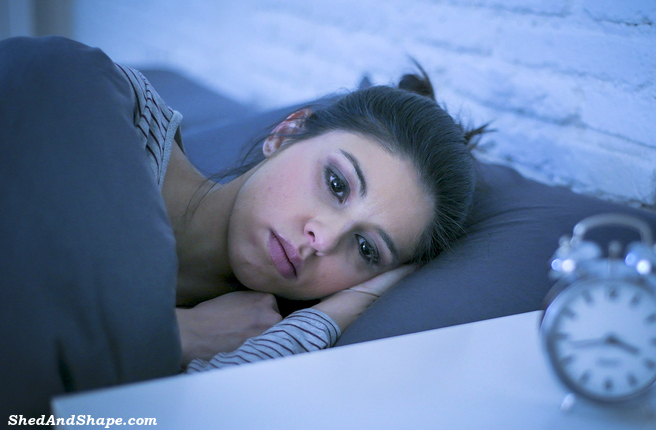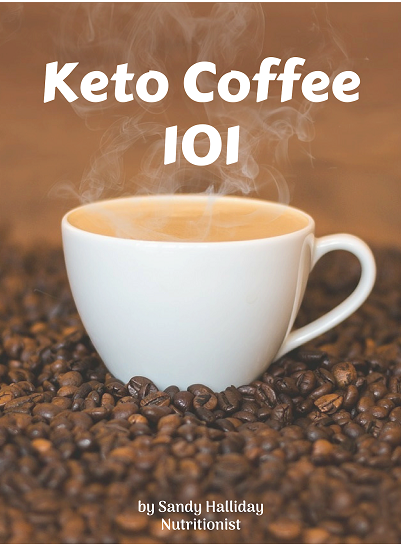Low carb insomnia is one of those symptoms that you may have to deal with when starting a low carb diet. But, the good news is that many people find they eventually sleep better than they have for years after a while while eating low carb.
Insomnia is one of the symptoms that can occur with low carb flu, a common side effect when just starting out on on a low carb diet. it is not inevitable though especially if you are careful and reduce carbs slowly and gradually.
Related reading: How To Cut Out Carbs Without Going Full Keto
In most cases, insomnia is just temporary. But if you still find it difficult to sleep even when you’ve been on the diet for several months, then you must do something about it.
If left untreated, your insomnia could affect your overall health. So here’s what you need to know about low carb insomnia and how to fix it.
What Causes Low Carb Insomnia?
When starting a low carb diet, you will most likely have to deal with low carb flu which is identical to keto flu. This is a common side effect of the diet, which comes with a host of other symptoms, including insomnia.
Related reading: Keto Insomnia and How To Fix it
If you remember having the actual flu in the past, you probably had difficulty sleeping. This is the same with the low carb flu.
But to fully understand how a low carb diet might be giving you some sleepless nights, let’s find out what’s happening in your body when you follow a low-carb diet.
If you eat fewer than 50 grams of carbs per day, while sufficiently increasing your fat intake, your body will enter into a metabolic state known as ketosis. Since your body doesn’t have enough carbs to be converted into energy, your body will turn to its second-best option, fats.
This is such a major change for your body, which is why you may suffer from various symptoms, known as low carb or keto flu. Amy Gorin, RD of Amy Gorin Nutrition has said,
“These symptoms occur because your body is getting used to the effects the diet is having on your body.”
The low carb flu can make you suffer with headache, fatigue, foggy brain, irritability, and nausea. Enough to put you off ever going on the diet! When you suffer from all of these, then you will surely find it difficult to sleep.
Additionally, researchers have found that a very low carb diet can result in a reduction of REM (rapid eye movement) sleep compared with people on a standard diet.
A lack of REM sleep has been linked with sleep deprivation which in turn may cause a greater risk of type 2 diabetes, obesity, cardiovascular disease, depression, dementia and cancer.
Other Causes of Low Carb Insomnia
Although the low carb flu is often the main reason why you’re suffering from insomnia on a low carb diet, there are several other reasons why you are having difficulty sleeping at night.
1. You Are Hungry
As with starting any type of diet, it could take a while before your body will get used to eating low carb. Although fats are very satiating, they might not be enough to keep your appetite suppressed since you’ve been used to eating carbs your whole life. This is why you could find yourself feeling hungry at night, making it difficult for you to fall asleep.
2. You’re Suffering from Digestive Issues
You could find yourself suffering from stomach upset while your body is still trying to get used to all the fats you are eating in exchange for carbs. Because of this, you could experience bloating, gas, and diarrhea. All these are very uncomfortable and could keep you awake all night.
3. Some New Ingredients Are Keeping you Awake
When you start a low carb diet, you will be introducing new ingredients. You may not be aware, but some of these ingredients could trigger low carb insomnia. For instance, bulletproof coffee, which is a mixture of black coffee, coconut oil, and butter, contains caffeine that could spike your energy levels, making it even more difficult for you to fall asleep.
How to Beat Low Carb Insomnia
Whether your insomnia is due to your low carb diet or not, you must fix it. Not getting enough sleep could affect your productivity at work, decrease your energy, and compromise your immune system.
And instead of losing weight, you could find yourself gaining weight because not having enough sleep could lead to binge eating. This defeats the purpose of your low-carb diet. So, here are some tips to help fix your insomnia.
- Establish a pre-bedtime routine that encourages sleep. For instance, you can take a warm relaxing bath with essential oils, listen to relaxing music, or read a book. As much as possible, avoid using electronic devices. These gadgets are distractions and are often the main reason why people are having a hard time sleeping these days.
- When exercising in the evening, schedule it at least five hours before bedtime. In addition, avoid eating big meals before you hit the sack. Aim to finish your evening meal at least 3 hours before you go to bed to allow time for it to be digested.
- Make your bedroom conducive to sleeping. Have dark curtains to keep the lights from the outside from getting in and maintain a cool temperature. Keep your pets out of your bed to avoid distractions.
- Set a daily sleep schedule and make sure you adhere to it. This means sleeping and getting up at the same time every day, including weekends. Our bodies work better on a regular routine. Avoid working late night shifts, if you can.
- If the reason you’re awake is that you’re feeling hungry, grab some low carb, light snacks. You can munch low-carb veggies with guacamole or eat some nuts. There are plenty of low carb snacks that you can incorporate into your diet. Just make sure you eat enough to keep you full but don’t overindulge.
- To minimize the symptoms of digestive issues that could keep you awake at night, try to add more fiber to your diet. Fiber can help to relieve constipation and other symptoms that come with digestive issues. Just make sure you stick with low-carb foods such as broccoli, cabbage, and cucumber.
- Try to avoid drinking too much coffee because the caffeine could be the reason why you’re having a hard time sleeping. If you want to include bulletproof coffee in your diet, drink it in the morning, or at least six hours before bedtime.
Final Thoughts
Insomnia is a common symptom when starting out on a low carb diet. The good news is, low carb insomnia, along with the other symptoms of low carb flu, is only temporary. These symptoms could subside as soon as your body adapts to your new lifestyle.
But, if you’ve been on the diet for a while and you are still suffering from insomnia, there could be other reasons that are keeping you awake at night. In this case, it is best to see a your doctor, Functional Medicine doctor or Naturopath. They can check if your insomnia is a symptom of another condition, and will recommend the best solution to treat your sleep problem.










